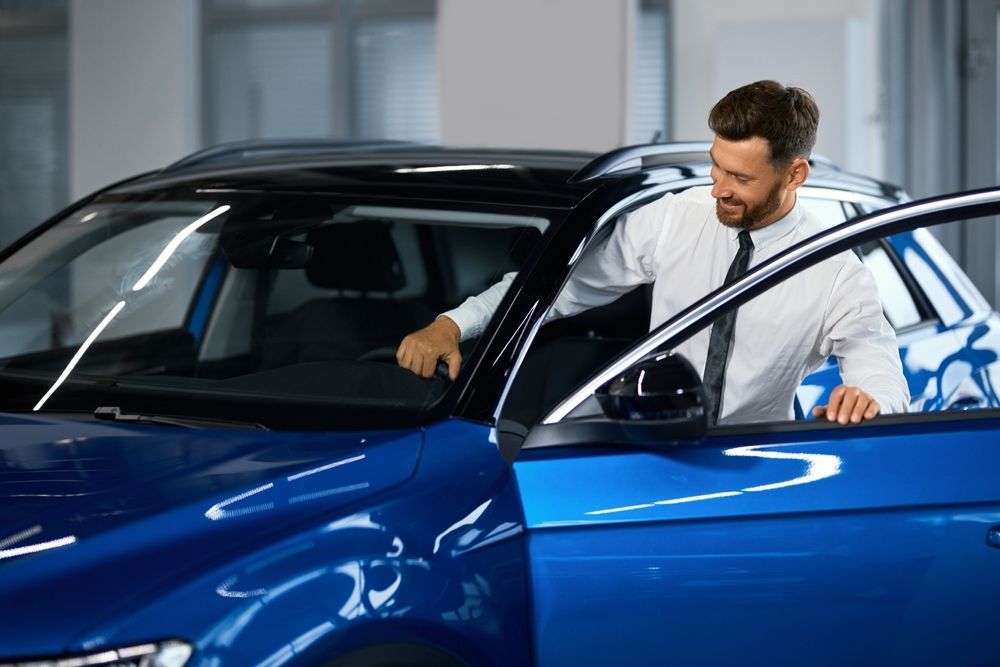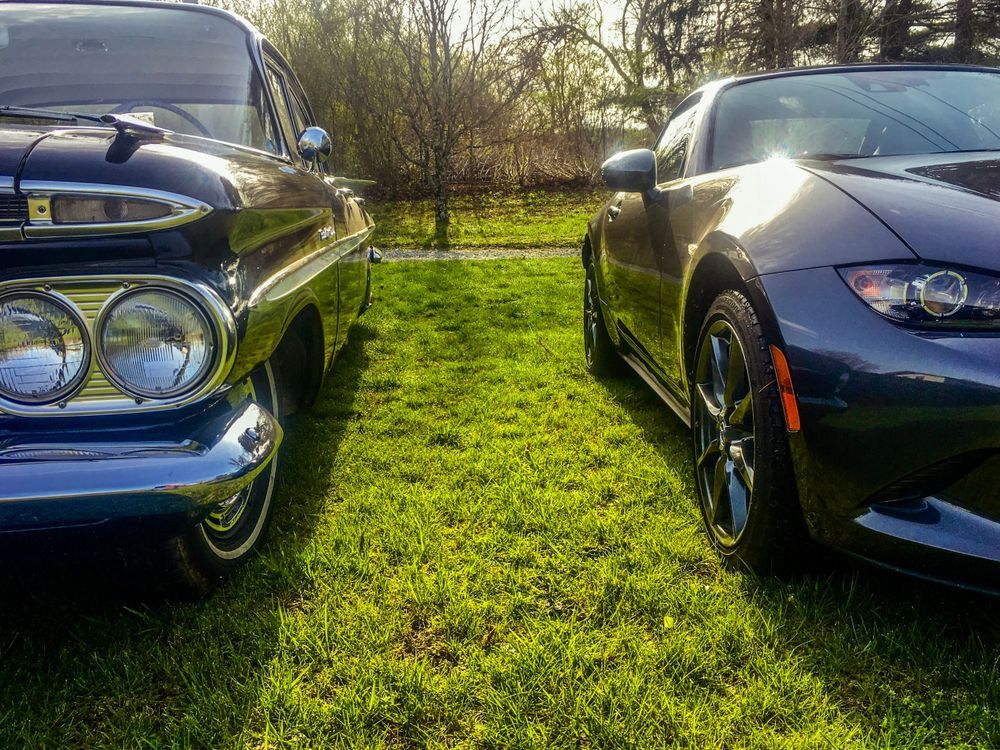
It would seem to be a no-brainer. If you want the best value for your money, then you would automatically buy a used car over a new one. The depreciation would have already been built into the price of the older vehicle, which can save you some cash. Remember, however, that you may be living with your purchase for as long as 10 years. Factors other than the initial purchase price may make it wiser to buy a new vehicle, as explained by these six reasons.
1. Safety Technology
You cannot put a price on safety, particularly if you have a family and children to worry about. As technology has improved, so have the safety systems on vehicles. Many of these protective features, which were once found only on luxury vehicles, have trickled down into economy brands. They include things like stability control, which gives you better handling and a smoother ride; adaptive cruise control, which keeps your vehicle at a safe distance from the one in front of you; blind spot monitoring, which warns you if a vehicle has entered an area that you cannot see; and the rearview camera, which shows what's behind your vehicle when you go into reverse.
2. Better Fuel Efficiency
Although the price of gasoline fluctuates with the price of oil, the cost generally heads upward, which can put a dent in the budget whenever you fill up your car. Fuel efficiency used to be expected only from small cars. But modern technology has improved the mileage ratings of all vehicles from small two-seaters to workhorse pickup trucks. Federal regulations have prompted fuel efficiency ranging from 27.5 MPG in 2010 to a predicted 39 MPG in 2016. The only way you can benefit from this better gas mileage is by buying a new vehicle. In your calculations of the price of a new car, be sure to include the amount of gas money saved because of the more fuel-efficient engine.
3. Alternative Energy Sources
An older vehicle will most likely use a standard internal combustion engine that runs on gasoline because no other technology was available when that car was manufactured. Today, you have several choices in cars that rely on gasoline alternatives. The Nissan Leaf and Ford Focus Electric, to name two examples, promise to cut energy costs because they rely on much cheaper electricity rather than gasoline. Other electric alternatives include the Chevrolet Volt, a plug-in Toyota Prius, and the Ford C-MAX Energi. If you're concerned about the relatively limited range of electric alternatives, you can opt for hybrid vehicles, which combined the energy savings of electric motors with the longer range of conventional engines. The Toyota Prius is perhaps the best known hybrid but many car manufacturers now offer hybrid versions from the economical Honda Accord to the upscale BMW i3.
4. Government Incentives
To encourage the use of alternative-energy vehicles, the federal government and many state governments offer incentives but only for the purchase of new vehicles. For example, many electric vehicles grant you a $7,500 tax credit from the federal government, a rebate of up to $3,000 from the San Joaquin Valley Air Pollution Control District in California, and use of the carpool lanes in California regardless of how many people are in the vehicle. Many of these incentives are not about a tax deduction, which only lowers your tax burden but about a tax credit, which is similar to receiving cash back.
5. Durability
By definition, a used car will have spent time on the road, which wears down its parts and makes it less durable. In addition, you have no idea how hard the vehicle was driven or what lack of maintenance or abuses it has suffered through. You may not get the amount of time you bargained for in the used vehicle. In contrast, everything on a new car remains unused. If anything goes wrong within the first year or two, you can count on manufacturers warranties to have repairs done for free. If you amortize the cost of a new car over the number of years you expect to own it, it may turn out to be cheaper than a used vehicle that you can only own for a few years.
6. Minimal Price Difference
A new car with all the bells and whistles will cost far more than a used vehicle. However, if you stick to just basic options and remove any expensive features, such as bigger wheels or an optional sunroof, your new vehicle may end up costing just slightly more than a used vehicle. In this case, the new car may prove to be the better bargain because of the previous five reasons.
Read next


Guide To Booking A Hotel

